How White Vinegar Can Transform Your Garden
You might be surprised to learn how white vinegar can become a game-changer in your garden. From naturally managing pesky weeds to enhancing the life of your fresh cut flowers, its uses are both practical and effective. It even plays a role in pest control and soil health. Curious about how a simple household item can make such a difference? Before you dismiss it as just another kitchen staple, consider the unique applications of vinegar that could elevate your gardening experience.
Versatile Herbicide Solution
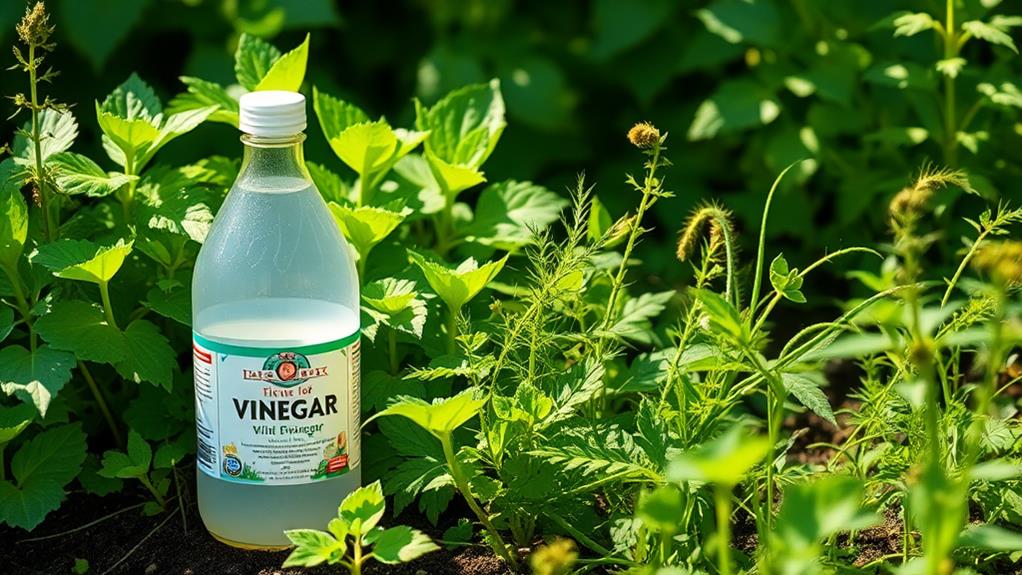
Harnessing the power of household white vinegar can be a game changer in your fight against weeds. This everyday kitchen staple, with its 5% acetic acid, works wonders when you want to get rid of weeds, especially the young ones. Just spray some full-strength vinegar in the garden, and you'll see the tops of those pesky invaders burn away in just 2-3 days!
For tougher weeds, you can mix 1 gallon of vinegar with 1 cup of salt and 2 tablespoons of dish soap. This combo boosts vinegar's weed-fighting powers, making it even more effective.
Just keep in mind that while vinegar can help you manage those weeds, it can also harm your favorite plants. So, be careful not to let it touch anything you love!
If you're battling perennial weeds, higher concentrations of acetic acid (like 10-20%) might do the trick, but remember, they only kill the foliage, not the roots. This means the weeds could come back for another round!
Effective Ant Deterrent
Ants can be a nuisance in any garden, but you can easily reclaim your space with white vinegar. Mix equal parts vinegar and water in a spray bottle, and you've got a simple ant deterrent. When you spray this solution directly on ants, it kills them instantly.
Not only that, but spraying it around your walkways and flower beds creates a barrier that deters ants from invading these areas. Vinegar's strong scent messes up their pheromone trails, making it tough for them to find their way around.
You can even use this solution indoors! Apply it around your door frames and window sills to keep those pesky ants from sneaking in.
For best results, don't just spray once. Regularly applying your vinegar and water mix around infested spots can help reduce ant populations over time. It's an eco-friendly pest management strategy that's easy to do.
Plus, you won't have to worry about harmful chemicals in your garden! So grab that spray bottle, and let's show those ants who's boss!
Enhancing Fresh Cut Flowers

If you want your fresh cut flowers to last longer, try a simple solution that combines sugar and white vinegar. Just mix 1 quart of water with 2 tablespoons of sugar and 2 tablespoons of vinegar.
This tasty concoction feeds your flowers while keeping the water solution clean. The sugar helps the flowers stay vibrant and happy, while the vinegar's acidic nature fights off pesky bacteria that can make your flowers wilt faster.
This method is especially great for home-grown bouquets, which mightn't have the preservatives that store-bought flowers do. You want your flowers to shine, and this trick helps them do just that!
Plus, don't forget to change the water regularly and add more of that vinegar solution. It's like a little spa treatment for your cut flowers!
Soil Ph Adjustment Techniques
Adjusting soil pH is essential for the health of your garden, especially if you're growing acid-loving plants like blueberries or azaleas. One way to change the pH is by using white vinegar. Just mix a small amount of vinegar with water before applying it to your soil. This helps keep your plants safe from any damage.
However, keep in mind that you'll need to use significant quantities if you really want to see a difference in pH levels.
It's also super important to regularly check the pH of your soil. Vinegar's effects are temporary, so you might need to reapply it from time to time. Remember, white vinegar contains acetic acid, which doesn't give your plants essential nutrients. So, while it can help adjust pH, it shouldn't be your only solution.
If you're looking for a more effective way to acidify your soil, consider using sulfur applications instead. They provide a longer-lasting impact.
Natural Pest Control Methods
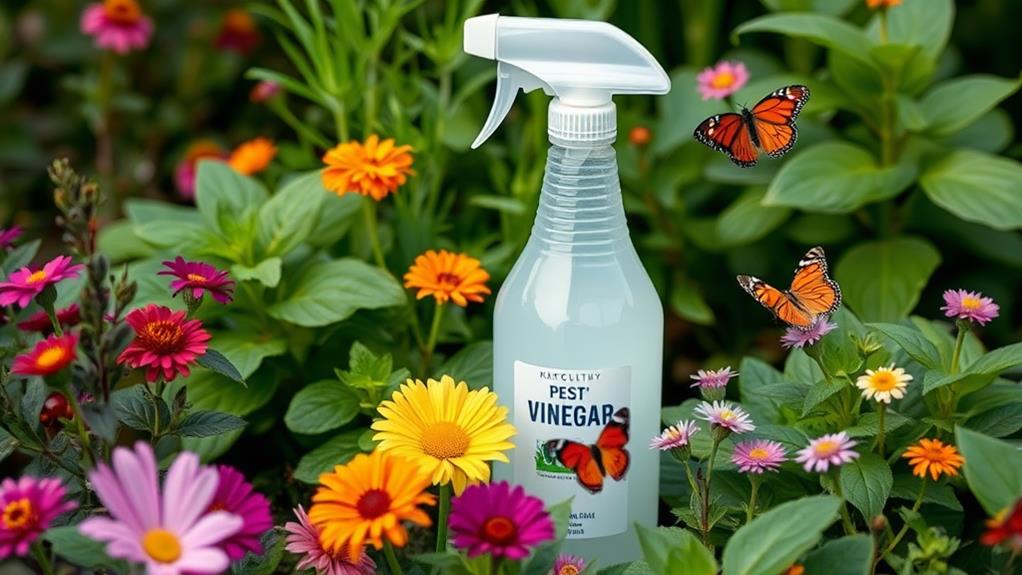
After optimizing your soil pH with white vinegar, you can take another step to protect your garden by exploring natural pest control methods.
Vinegar is great for keeping pesky critters at bay! For ants, mix half vinegar and half water in a spray bottle, then spritz it around entry points and their trails. They'll think twice about invading your space!
If slugs and snails are munching on your plants, try spraying them directly with a diluted vinegar solution. They'll find the environment less than pleasant and slink away.
And don't forget about deer; their strong sense of smell makes vinegar a natural deterrent. Just be ready to reapply it often!
For mold or mildew, use undiluted vinegar on affected areas. It zaps those pesky fungi without using harsh chemicals.
Plus, regular applications of vinegar on your garden plants can help keep various pests away, promoting healthy growth and reducing the need for chemical pesticides.
Cleaning and Sanitizing Tools
Keeping your garden tools clean and sanitized is essential for maintaining plant health and preventing disease. Did you know that a simple 5% vinegar solution can be your best friend when it comes to cleaning and sanitizing tools?
It works wonders on shears and pruners, helping to stop viruses and fungi from hopping between plants. To make things even easier, use a spray bottle. This way, you can give your tools a quick spritz between cuts when you're working on multiple plants.
Plus, vinegar is a natural alternative to those harsh chemicals. It's just as effective as bleach or commercial sanitizers but without the harmful residues.
Composting and Fertilization Boosters
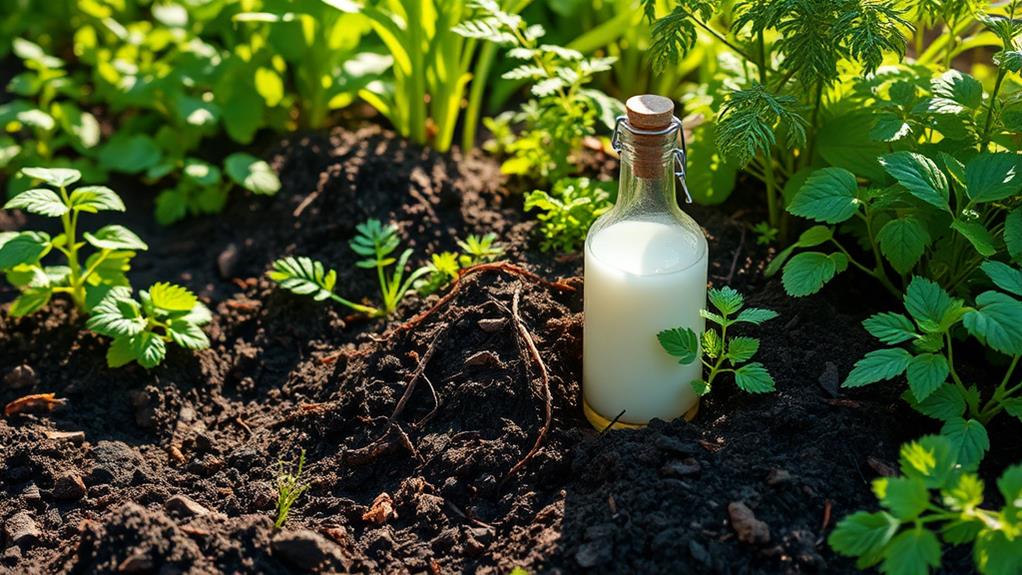
Vinegar isn't just a handy cleaner; it can also be a game-changer for your compost and fertilization efforts. If you're looking to speed up your composting, adding a little vinegar can work wonders. It acts as a compost accelerator, boosting microbial activity and helping break down organic matter faster.
Just remember, moderation is key! Too much vinegar can make the compost pile too acidic, which isn't great for those helpful microbes.
Now, when it comes to feeding your plants, vinegar can also lend a hand. By mixing vinegar with water and applying it to your soil, you can improve nutrient absorption in your plants. This gives them a quick nutrient boost that they'll appreciate during the growing season.
While vinegar isn't packed with nutrients itself, it works well alongside other fertilizers to support healthy plant growth.
Plus, by regularly adding vinegar to your compost, you promote healthy decomposition and nutrient cycling. This means richer compost for your garden!
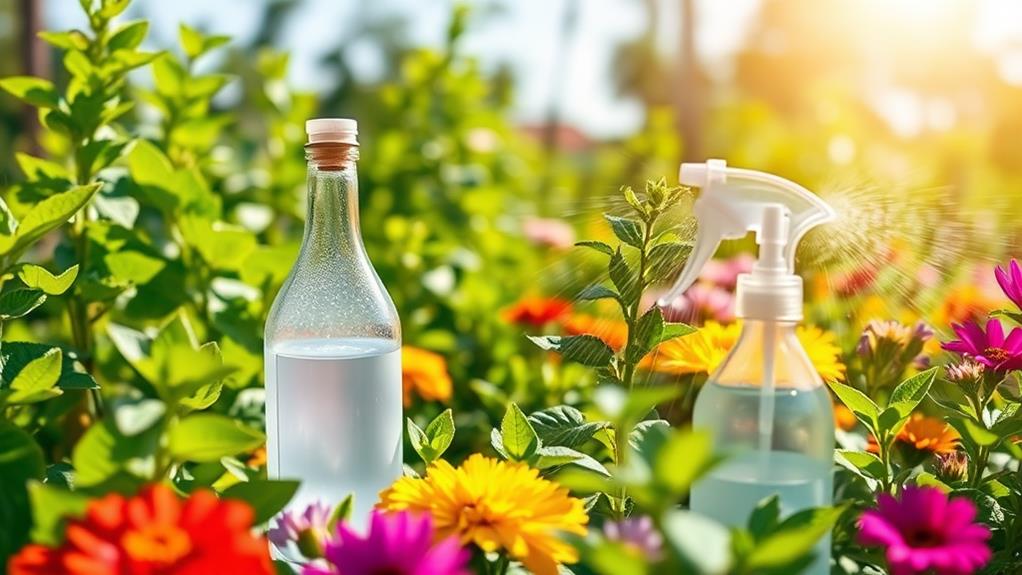
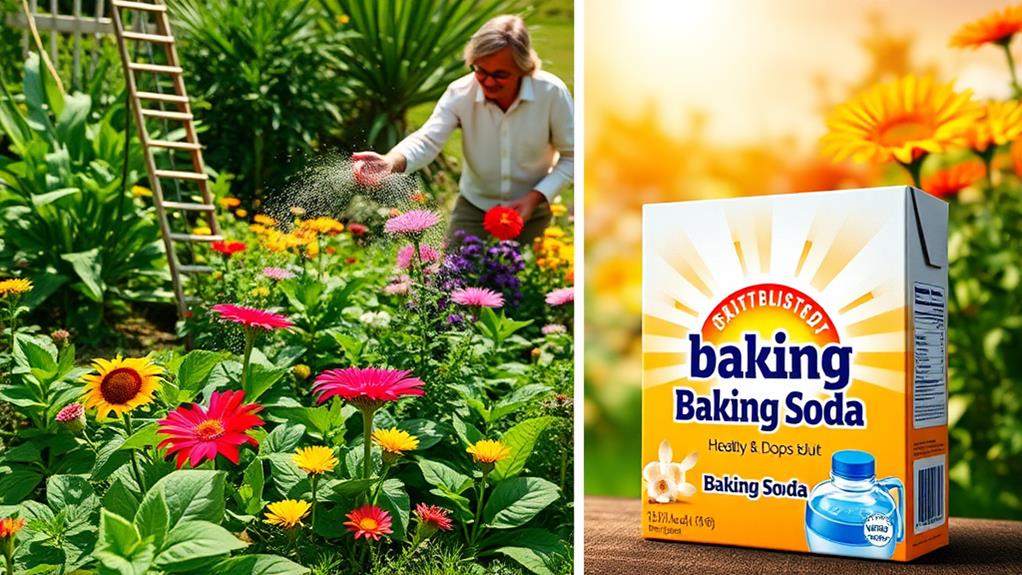






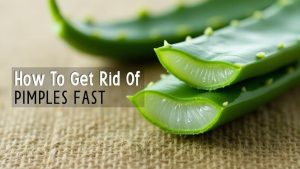



Post Comment